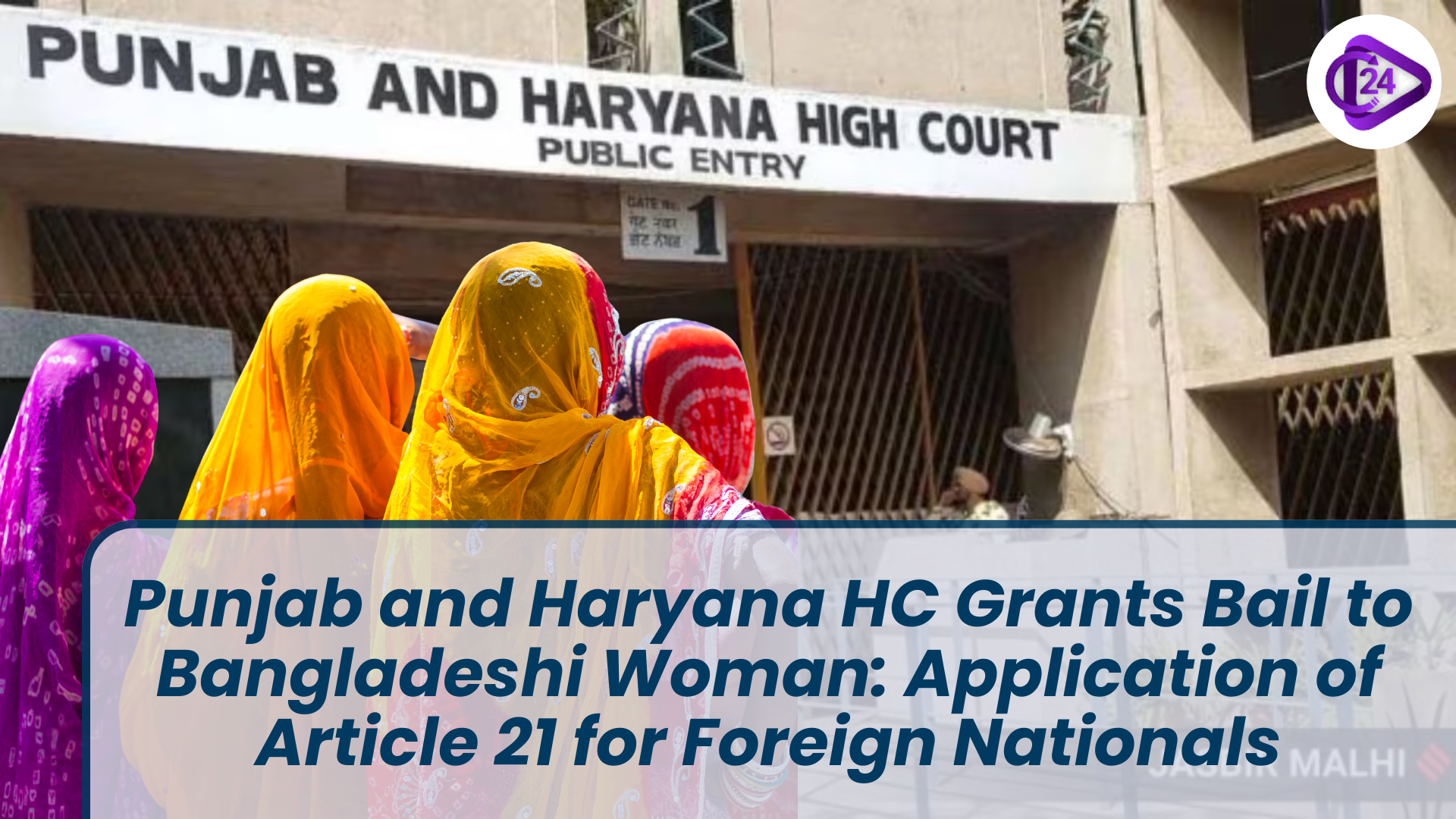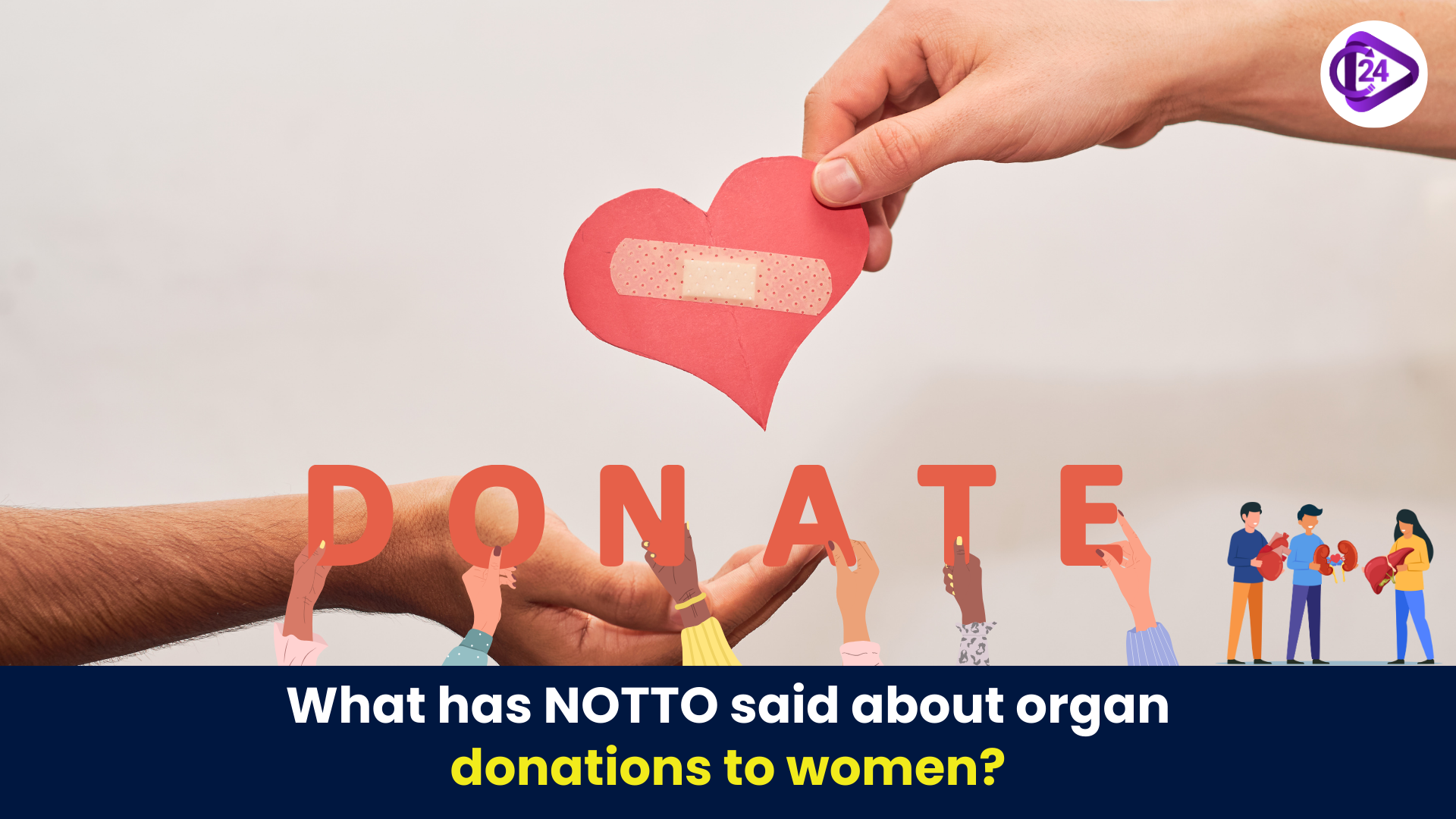
Recently, the Punjab and Haryana High Court bailed out Farida Praveen, a Bangladeshi woman who had allegedly committed forgery, cheating and illegal residency in India. The decision of the court focused on the use of Article 21 (Right to Life and Personal Liberty) to the foreign nationals in the sense that no person should be denied the right to their personal liberty without following the due process of law. The case highlights the protection of people, including foreigners, by Article 21 against unjustified detention even when it comes to undocumented migrants.
Context
Case Overview:
-
On February 5, 2025, Farida Praveen (Shikha Gaur) was in pre-trial custody on charges of cheating, forgery and illegal stay in India.
-
It is a case founded on a complaint made by Santosh Sharma who claimed that she induced his son into a relationship and stole money and jewellery.
-
Praveen has been spotted to have forged the documents to obtain Aadhaar, PAN and voter ID in a different name.
Legal Arguments:
-
That Praveen was a foreign nation and was illegally entering India, the Haryana Government claimed, and had forged documents.
-
The lawyer of Praveen argued that any further detention, particularly of an undocumented migrant who could not secure sureties, was an irreversible injustice.
Court’s Ruling:
-
This was made possible by the Punjab and Haryana High Court, which was conscious of the fact that the pre-trial detention may cause irreparable injustice and therefore, bail was granted after a consideration that the length of the custody period may cause irreparable injustice and the person may not be able to find sureties.
-
The court recognised Article 21 protections, stating that Article 21 uses the word person to apply to citizens and foreigners alike. This guarantees that foreign citizens enjoy equal protection of personal liberty as the Indian citizens do.
Conditions for Bail:
-
The court imposed the amount of bond as Rs 10,000 and Praveen was released on personal bonds or on a fixed deposit in case she could not secure sureties.
-
The bail was released on the condition of six months in custody bearing in mind that the charges were not criminal in nature and that there was no criminal history.
Importance of Article 21:
-
The court quoted many Supreme Court decisions especially that Article 21 extends to foreigners such that they are not subject to arbitrary acts and lawless detention.
-
The court pointed out that the undocumented migrants may find it difficult to provide sureties, and that the bail terms must not be so complicated that they become tantamount to denying him/her freedom.
The Legal Foundation: Article 21 - Right to Life and Personal Liberty
-
The basic right of protection of life and personal liberty is provided under article 21 of the Indian constitution. It guarantees that no individual (including foreigners) will be denied his life or liberty without following the due process as provided in the law.
Important Judgments:
-
Gopalan Case (1950): The court decided that Article 21 protection is limited to arbitrary executive action and not to arbitrary legislative action.
-
Case of Maneka Gandhi (1978): The decision broadened the coverage of Article 21, and it incorporated the concept of the due process of law, and ruled that personal liberty encompasses a broad spectrum of rights.
-
KS Puttaswamy Case (2017): The Supreme Court defended the Right to Privacy as stipulated in the Article 21 with the focus on the basic right to dignity.
-
Hadiya Case (2017): This case reiterated the fact that the right to marry legally whom one chooses is fundamental to Article 21.
Right to Life and Liberty deals with many rights, such as:
-
Right to live with dignity and freedom of unlawful detention.
-
Right to privacy, right to shelter, right to health, right to free legal aid and right to fair trial.
Article 21 and Foreign Nationals:
-
Article 21 is not restricted to the citizens of India but also pertains to foreign nationals in India. This protection plays a vital role in the preservation of the human rights of an individual as well as the fact that the aliens do not lose their freedom without any reasonable procedure.
-
The court of the case emphasized that the foreigners also deserve the right to liberty, therefore, contributing to the notion that individual liberty is also a universal right according to the Indian Constitution.
Conclusion:
The case in which the Punjab and Haryana High Court ruled in favor of Farida Praveen to grant him bail strengthens the need to enforce Article 21 to guard the personal liberty even of a foreign country. It points out that whether one is a citizen or not, he is entitled to the protection against arbitrary detention and the right to judicial fair treatment. The case also highlights the expanded understanding of Article 21 that human dignity and personal freedom are not limited to the citizens of India but also to everyone in India, even undocumented migrants.



 NHAI launches Project Aarohan to support education of toll plaza workers’ families
NHAI launches Project Aarohan to support education of toll plaza workers’ families RAN SAMWAD-2025: A Groundbreaking Tri-Service Seminar on Warfighting at Army War College
RAN SAMWAD-2025: A Groundbreaking Tri-Service Seminar on Warfighting at Army War College CISF Launches First All-Women Commando Unit to Strengthen Gender Parity
CISF Launches First All-Women Commando Unit to Strengthen Gender Parity NCERT Introduces Indian Classical Art Forms in School Curriculum (Classes 3–8)
NCERT Introduces Indian Classical Art Forms in School Curriculum (Classes 3–8) What has NOTTO said about organ donations to women?
What has NOTTO said about organ donations to women? Srinagar’s Dal Lake Hosts First-Ever Khelo India Water Sports Festival
Srinagar’s Dal Lake Hosts First-Ever Khelo India Water Sports Festival Kerala: India’s First Fully Digitally Literate State
Kerala: India’s First Fully Digitally Literate State Lok Sabha Clears Bill Banning Real Money Gaming
Lok Sabha Clears Bill Banning Real Money Gaming India Successfully Test-Fires Agni-5 Intermediate-Range Ballistic Missile
India Successfully Test-Fires Agni-5 Intermediate-Range Ballistic Missile






